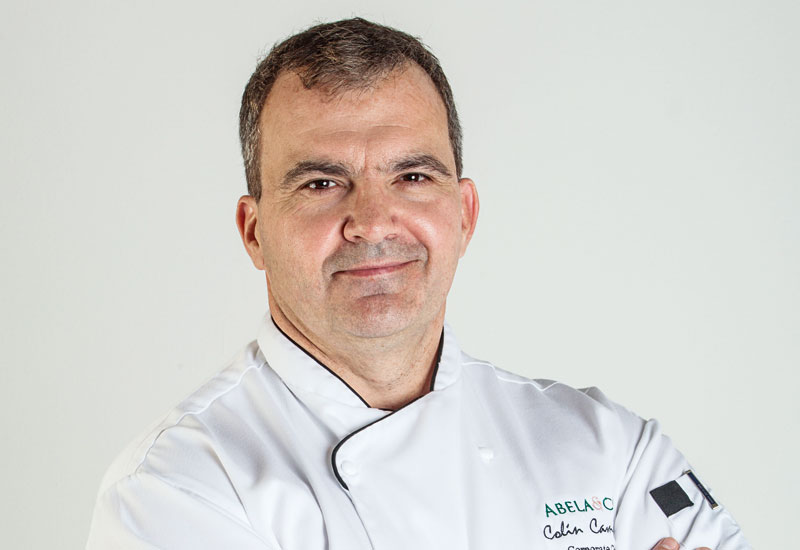The conundrum of innovation versus budget clearly makes for a careful balancing act.
“Any chef faces the same issue of getting the best that you can with the budget he has. It’s a challenge but at the same time there’s beauty in that challenge when you’re taking a cheaper cut of meat and asking yourself how you can cook it in such a way to get the best out of that meat. Our daily challenge is always to make the very best with what we have. It’s a balancing act between quality, consistency and variety traded against price, and that always becomes a bit of a paradox.
“Great infrastructure, and the resources and manpower needed to do a good job come at a price but a lot of our sector mostly cares about the bottom line.”
Keeping the menu varied and having fun with trying out new ideas is even more important when you are feeding the same people day in, day out.
“Most of us are in a position where we can choose where we want to eat at any time — we have that luxury — but a lot of people we’re catering for have breakfast, lunch and dinner at the same place. As a result of budget or where they work, they don’t have the ability to pop out and get anything they fancy. We literally have to keep it interesting for the same client; the same people might be eating our food for several years because we have had contracts for 10 or 15 years,” he explains.
There is the added challenge as well of some of the sectors Abela supplies having a further need for food that can be considered healthy, including hospitals and schools. The company has looked at the possibility of using organic produce and Campbell reports that Abela is always open to exploring new ideas, though ultimately this approach does not fit the mass catering model.
“Abela has an enquiring mind generally and we are prepared to look, but there is always that commercial side. At the end of the day, it’s a business. Sustainability is a noble venture, as is the whole ‘farm to table’ organic, biodynamic concept. It’s wonderful but the prices are not practical. It’s unrealistic [on a mass scale],” he laments.
Continuing, he adds: “Take the hotel sector, which is one of our biggest clients: there’s a need for healthy dishes and we look at providing those but there is also a need to provide dishes by nationality. A diet rich in soy sauce has a lot of sodium but if I leave the soy out, then it’s not going to work well. Similarly, Indian food uses ghee. Pakistani food, to some extent, has more oil to carry the flavour.
“So, you have to consider the dietary and flavour profiles of specific countries. Filipinos like pork with fat — we don’t go near pork — but it's a good example of the reality of that diet.”
Ultimately, when you are running a business, it comes down to giving people what they want and keeping the client happy. Campbell tells Caterer Middle East that he has to balance the numbers in terms of trying to make a high percentage happy. He concedes: “You want them all to be happy, of course, but people are people and not everyone has exactly the same tastes.”

| Advertisement |









 Search our database of more than 2,700 industry companies
Search our database of more than 2,700 industry companies









